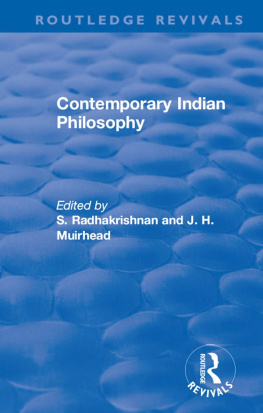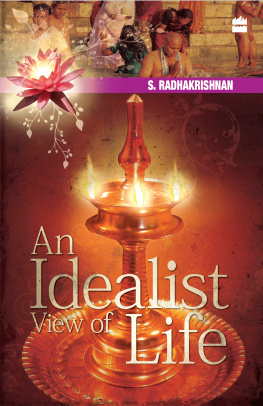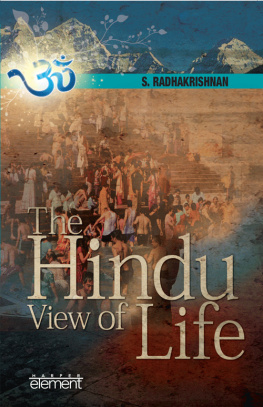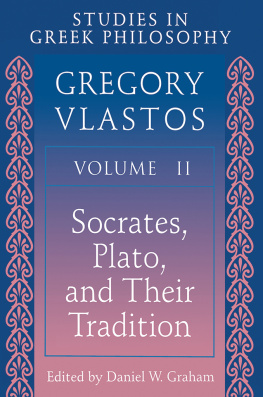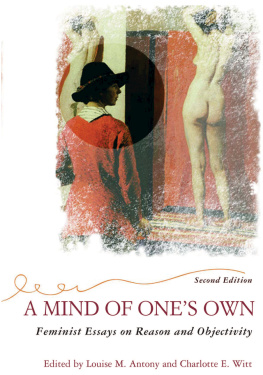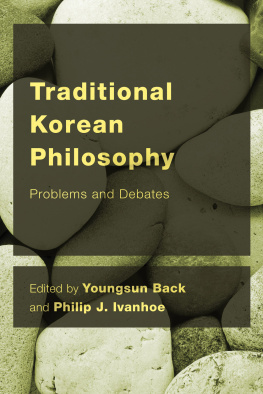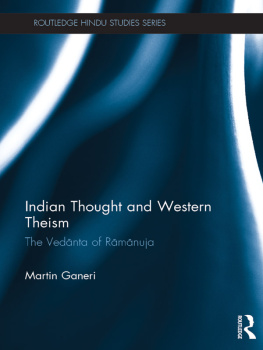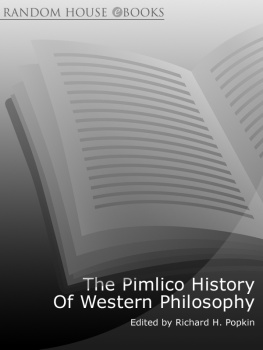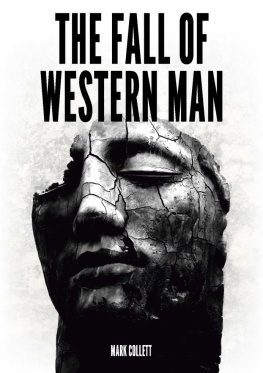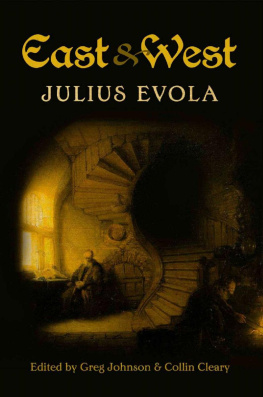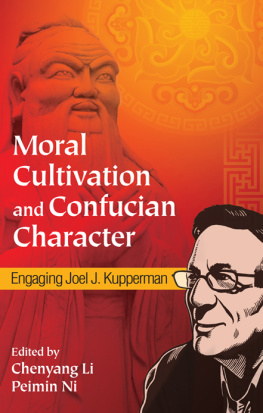First published in 1936 by George Allen & Unwin Ltd.
This edition first published in 2018 by Routledge
2 Park Square, Milton Park, Abingdon, Oxon, OX14 4RN
and by Routledge
711 Third Avenue, New York, NY 10017
Routledge is an imprint of the Taylor & Francis Group, an informa business
1936 Taylor & Francis
All rights reserved. No part of this book may be reprinted or reproduced or utilised in any form or by any electronic, mechanical, or other means, now known or hereafter invented, including photocopying and recording, or in any information storage or retrieval system, without permission in writing from the publishers.
Publishers Note
The publisher has gone to great lengths to ensure the quality of this reprint but points out that some imperfections in the original copies may be apparent.
Disclaimer
The publisher has made every effort to trace copyright holders and welcomes correspondence from those they have been unable to contact.
A Library of Congress record exists under ISBN: 37002311
ISBN 13: 978-1-138-55303-3 (hbk)
ISBN 13: 978-1-138-56529-6 (pbk)
ISBN 13: 978-1-315-12296-0 (ebk)
LIBRARY OF PHILOSOPHY
As may be seen from the original programme printed in Erdmanns History of Philosophy under the date 1890, the Library of Philosophy was designed as a contribution to the History of Modern Philosophy under the heads: first of different Schools of ThoughtSensationalist, Realist, Idealist, Intuitivist; secondly of different SubjectsPsychology, Ethics, Aesthetics, Political Philosophy, Theology. While much had been done in England in tracing the course of evolution in nature, history, economics, morals and religion, little had been done in tracing the development of thought on these subjects. Yet the evolution of opinion is part of the whole evolution.
By the co-operation of different writers in carrying out this plan it was hoped that a thoroughness and completeness of treatment, otherwise unattainable, might be secured. It was believed also that from writers mainly British and American fuller consideration of English Philosophy than it had hitherto received might be looked for. In the earlier series of books containing, among others, Bosanquets History of sthetic, Pfleiderers Rational Theology since Kant, Albees History of English Utilitarianism, Bonars Philosophy and Political Economy, Bretts History of Psychology, Ritchies Natural Rights, these objects were to a large extent effected.
In the meantime original work of a high order was being produced both in England and America by such writers as Bradley, Stout, Bertrand Russell, Baldwin, Urban, Montague and others, and a new interest in foreign works, German, French and Italian, which had either become classical or were attracting public attention, had developed. The scope of the Library thus became extended into something more international, and it is entering on the fifth decade of its existence in the hope that it may contribute in this highest field of thought to that Intellectual Co-operation which is one of the most significant objects of the League of Nations and kindred organisations.
GENERAL EDITOR
LIBRARY OF PHILOSOPHY
GENERAL EDITOR
PROFESSOR J. H. MUIRHEAD, LL.D.
ANALYTIC PSYCHOLOGY By Prof. G. F. Stout. Two Vols. 5th Impression
ATTENTION By Prof. W. B. Pillsbury. 2nd Impression.
HISTORY OF STHETIC By B. Bosanquet. 5th Impression. 4th Edition.
HISTORY OF ENGLISH UTILITARIANISM By Prof. E. Albee.
HISTORY OF PHILOSOPHY By J. E. Erdmann.
Vol. I. ANCIENT AND MEDIVAL. 5th Impression.
Vol. II. MODERN. 6th Impression.
Vol. III. SINCE HEGEL. 7th Impression.
HISTORY OF PSYCHOLOGY By Prof. G. S. Brett.
Vol. I. ANCIENT AND PATRISTRIC.
Vol. II. MEDIVAL AND EARLY MODERN PERIOD.
Vol. III. MODERN PSYCHOLOGY.
MATTER AND MEMORY By Henri Bergson. Translated byN. M. Paul and W. S. Palmer. 4th Impression.
NATURAL RIGHTS By D. G. Ritchie. 3rd Edition.
PHILOSOPHY AND POLITICAL ECONOMY By Dr. J. Bonar. 4th Impression.
DEVELOPMENT OF THEOLOGY SINCE KANT By O. Pfleiderer.
THE PHENOMENOLOGY OF MIND By G. W. F. Hegel. Translated by Dr. J. B. Baillie. 2nd Edition.
TIME AND FREE WILL By Prof. Henri Bergson. Translated byF. L. Pogson. 5th Impression.
VALUATION: THE THEORY OF VALUE By Prof. W. M. Urban.
THE PSYCHOLOGY OF THE RELIGIOUS LIFE By Prof. G. M. Stratton. 2nd Edition.
THE GREAT PROBLEMS By Bernardino Varisco. Translated by Prof. R. C. Lodge.
KNOW THYSELF By Bernardino Varisco. Translated by Dr. Guglielmo Salvadori.
ELEMENTS OF FOLK PSYCHOLOGY By W. Wundt. Translated by Prof. Edward L. Schaub. 3rd Impression.
ELEMENTS OF CONSTRUCTIVE PHILOSOPHY By Prof. J. S. Mackenzie. 2nd Impression.
SOCIAL PURPOSE By Dr. H. J. W. Hetherington and Prof. J. H. Muirhead. 2nd Impression.
INTRODUCTION TO MATHEMATICAL PHILOSOPHY By Bertrand Russell, F.R.S. 3rd Impression.
GOD AND PERSONALITY (GIFFORD LECTURES) By Prof. Clement C. J. Webb. (Part I.) 2nd Impression.
DIVINE PERSONALITY AND HUMAN LIFE (GIFFORD LECTURES) By Prof. Clement C. J. Webb. (Part II.) 2nd Impression.
MODERN PHILOSOPHY By Guido de Ruggiero. Translated by A. Howard Hannay and R.G. Collingwood.
THE ANALYSIS OF MIND By Bertrand Russell, F.R.S. 3rd Impression.
DIALOGUES ON METAPHYSICS By Nicholas Malebranche. Translated by Morris Ginsberg.
INDIAN PHILOSOPHY By Prof. S. Radhakrishnan. 2nd Edition.Two Vols.
CONTEMPORARY BRITISH PHILOSOPHY Edited by Prof. J. H. Muirhead. Two Vols.
THE WAYS OF KNOWING: OR, THE METHODS OF PHILOSOPHY By Prof. W. P. Montague. 2nd Impression.
A THEORY OF DIRECT REALISM; AND THE RELATION OF REALISM TO IDEALISM By J. E. Turner.
THE GOOD WILL: A STUDY IN THE COHERENCE THEORY OF GOODNESS By H. J. Paton.
FUNDAMENTAL PROBLEMS OF LIFE: AN ESSAY ON CITIZENSHIP AS PURSUIT OF VALUES By Prof. J. S. Mackenzie.
THE INTELLIGIBLE WORLD: METAPHYSICS AND VALUE By Prof. W. M. Urban.
CONTEMPORARY AMERICAN PHILOSOPHY Edited by Prof. George P. Adams and Prof. Wm. Pepperell Montague. Two Vols.
HEGELS SCIENCE OF LOGIC Translated by W. H. Johnston andL. G. Struthers. Two Vols.
IDENTITY AND REALITY By Emile Meyerson. Translated byKate Loewenberg.
MORAL SENSE. By James Bonar.
COLERIDGE AS PHILOSOPHER By Prof. J. H. Muirhead.
IDEAS: GENERAL INTRODUCTION TO PURE PHENOMENOLOGY By Edmund Husserl. Translated by W. R. Boyce Gibson.

